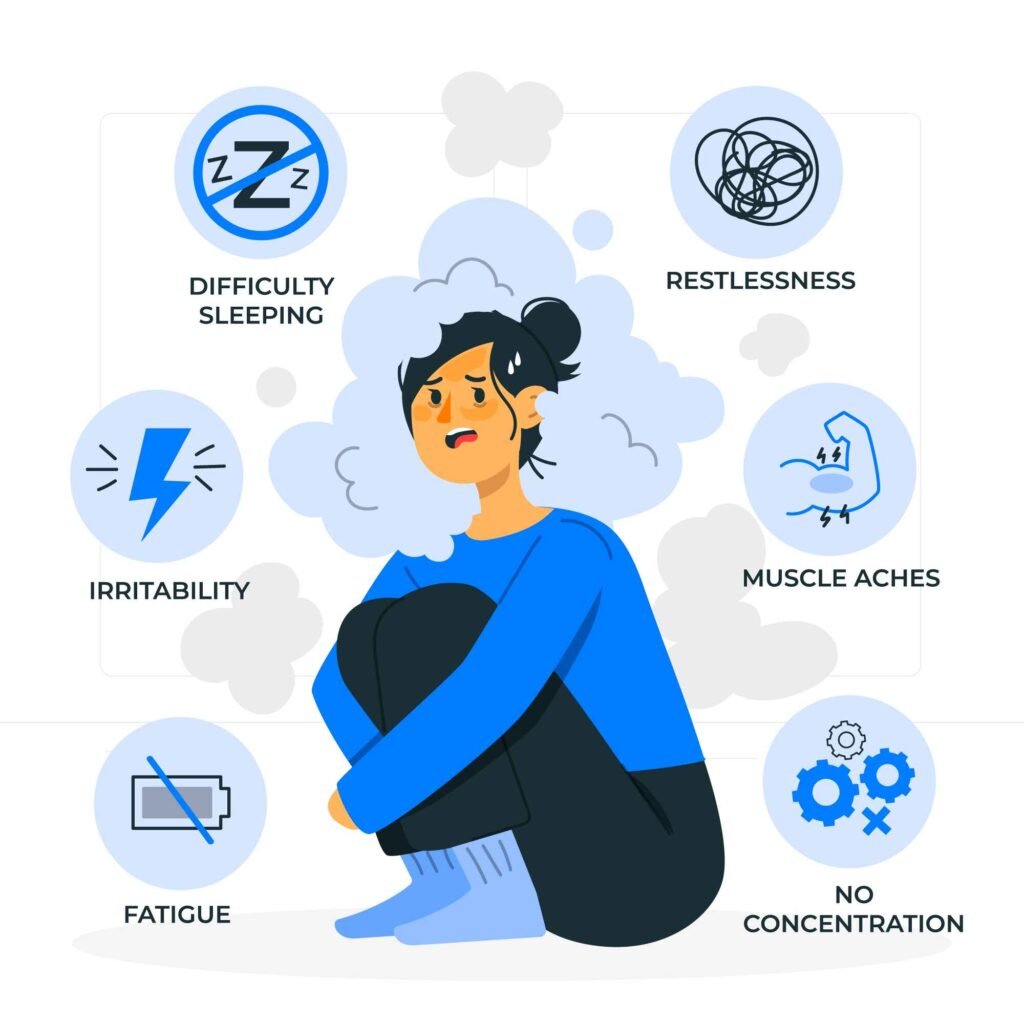
Online Therapy Options: What You Need to Know — A Guide to Finding and Choosing the Right Platform
Online therapy has revolutionized mental health care by making it more accessible and convenient for millions of people worldwide. With various platforms and therapy options available, it can be challenging to know which service best fits your needs. This comprehensive guide will break down everything you need to know about online therapy, including its benefits, how to choose the right platform, and the factors you should consider before getting started.
The Growing Demand for Online Therapy
Mental health has become a prominent topic of discussion, with more people realizing the importance of taking care of their psychological well-being. However, busy schedules, geographic limitations, and the stigma surrounding traditional therapy have often prevented individuals from seeking help. Enter online therapy.
In the last decade, the popularity of telehealth services, including online therapy, has skyrocketed. The COVID-19 pandemic further accelerated this growth, with lockdowns and social distancing measures making in-person therapy difficult. Online therapy has emerged as a solution, allowing people to receive support from licensed professionals from the comfort of their own homes.
What is Online Therapy?
Online therapy, also known as teletherapy, e-therapy, or virtual therapy, involves receiving counseling and mental health support through digital platforms. Sessions can take place via video conferencing, phone calls, live chats, or even messaging, depending on the platform you choose and your personal preference.
The flexibility of online therapy is one of its biggest selling points. You no longer need to visit a therapist’s office or work around a therapist’s availability that clashes with your schedule. Instead, you can book a session at a time that suits you best, making mental health care more accessible than ever.
Benefits of Online Therapy
- Accessibility
Online therapy breaks down barriers, providing mental health care to people living in remote or underserved areas. If you don’t live near a qualified therapist, you can still access therapy online, opening up a much wider range of options. - Convenience
No more commuting to appointments or rearranging your day to fit them in. With online therapy, you can have sessions from the comfort of your own home, whether you’re in your bedroom, office, or even while on vacation. Many platforms also offer flexible scheduling, making it easier for busy professionals or parents to find time for therapy. - Anonymity
For some, the stigma surrounding mental health care can be a significant barrier. Online therapy offers a greater sense of privacy, allowing individuals to receive care without worrying about being seen entering a therapist’s office. - Variety of Therapists
Geography no longer limits your options when it comes to finding a qualified therapist. Online therapy allows you to choose from a broad pool of licensed professionals, ensuring that you can find someone with the right expertise and who is a good fit for your needs. - Affordability
In many cases, online therapy can be more affordable than traditional in-person therapy. Some platforms offer subscription models, making it easier to budget for regular sessions. Additionally, you save on travel costs and can often find sliding scale fees or payment plans that accommodate your financial situation.
How to Choose the Right Online Therapy Platform
There are several online therapy platforms available today, each offering different services, pricing models, and therapist availability. When choosing a platform, it’s important to consider your unique needs and preferences. Here’s a step-by-step guide to help you find the right online therapy service:
1. Assess Your Mental Health Needs
Before selecting a platform, evaluate what you need from therapy. Are you dealing with anxiety, depression, relationship issues, or something else? Your mental health condition will help guide your choice. For example, platforms specializing in Cognitive Behavioral Therapy (CBT) might be more effective for anxiety and depression, while couples therapy platforms may be better suited for relationship counseling.
2. Check Therapist Qualifications
One of the most important factors in choosing an online therapy platform is ensuring the professionals are licensed and qualified. Look for therapists who hold the necessary certifications in your country or state. Some platforms allow you to browse therapist profiles before committing, so take the time to read reviews and verify their credentials.
3. Review Communication Options
Different platforms offer various modes of communication, including:
- Video Calls: Closest to traditional in-person therapy, video calls allow for face-to-face interaction, which many clients prefer.
- Phone Calls: If video sessions aren’t possible, phone calls are another way to connect with your therapist.
- Messaging and Chat: Some people may prefer texting or asynchronous messaging, which allows for ongoing conversations without the pressure of live sessions. However, this may not be ideal for more complex issues.
Choosing a platform that offers multiple communication options can provide flexibility as your needs evolve.
4. Consider the Cost and Payment Models
Pricing varies widely among online therapy platforms. Some operate on a subscription model, where you pay a monthly fee for a set number of sessions, while others allow you to pay per session. Many platforms also offer free trials or sliding scale fees based on income.
While some platforms do not accept insurance, others may work with certain providers. If insurance coverage is important to you, check whether the platform accepts your plan before signing up.
Popular Online Therapy Platforms
Here’s an overview of some of the most well-known online therapy platforms to help you make an informed decision:
1. BetterHelp
- Best for Accessibility: BetterHelp is one of the largest online therapy platforms, offering a wide network of licensed therapists.
- Communication: Video, phone, and messaging options.
- Cost: Subscription-based, ranging from $240 to $360 per month.
2. Talkspace
- Best for Insurance: Talkspace partners with many insurance providers, making therapy more affordable for those with coverage.
- Specialty Services: Offers individual, couples, and teen therapy, as well as psychiatric consultations.
- Cost: Subscription-based, with prices ranging from $276 to $436 per month.
3. Online-Therapy.com
- Best for CBT: This platform specializes in Cognitive Behavioral Therapy, a proven method for treating anxiety and depression.
- Communication: Offers video, phone, and messaging options.
- Cost: Free plan available, with premium options for more in-depth support.
4. ReGain
- Best for Couples Therapy: If you’re seeking relationship counseling, ReGain specializes in therapy for couples.
- Communication: Primarily offers messaging, with video and phone sessions available upon request.
- Cost: Subscription-based, with plans starting at $60 per week.
Key Factors to Consider When Starting Online Therapy
1. Therapist Availability
Not all therapists will have availability that suits your schedule. If you have a demanding job or other commitments, look for a platform that offers evening or weekend sessions. Some platforms even offer therapy via messaging, which can be more flexible for people with busy lives.
2. Privacy and Security
Therapy sessions, whether online or in-person, are deeply personal. Ensure the platform you choose complies with data privacy regulations like HIPAA in the U.S. or GDPR in Europe to protect your information. Ask about encryption methods used to safeguard your communication with the therapist.
3. Trial Periods and Matching Process
Many platforms offer a free trial or initial consultation, allowing you to try the service before committing. Look for platforms that also offer a therapist-matching feature, which helps ensure you’re paired with a therapist who aligns with your needs and preferences. A good match is crucial for effective therapy.
Is Online Therapy Right for You?
Online therapy can be highly effective for many mental health conditions, such as anxiety, depression, stress management, and relationship issues. However, it may not be suitable for more severe cases that require intensive, in-person care, such as those involving psychosis or severe suicidal ideation.
If you’re unsure whether online therapy is right for you, consider starting with a free consultation or trial session to see if the format suits your needs.
Final Thoughts: Empowering Your Mental Health Journey
Online therapy is a powerful tool for individuals seeking mental health support without the constraints of traditional, in-person sessions. With its growing accessibility, affordability, and variety of therapeutic options, there’s never been a better time to explore teletherapy. By considering your mental health needs, therapist qualifications, preferred communication methods, and budget, you can find an online therapy platform that helps you take control of your mental well-being.
Remember, the most important step in your mental health journey is reaching out for help. Whether online or in person, therapy can be the key to improving your mental health and overall quality of life.



